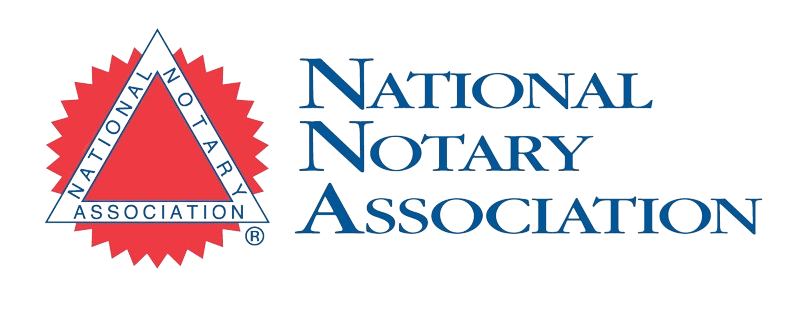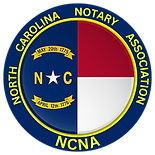Frequently Asked
Questions
Notary Services in the Concord, Kannapolis, Huntersville, Davidson, Mooresville, Salisbury, Lexington, Winston-Salem
FAQs
What is a notary public and what do they do?
A notary public is an official authorized by the state to witness the signing of important documents and administer oaths. They verify the identities of signers and ensure the documents are executed correctly.
Do I need to make an appointment with a notary?
While some notaries may accept walk-ins, we are a fully mobile and require appointments to ensure availability.
Do I need a witness when I get my document signed?
Whether you need a witness to sign a notarized document depends on the requirements outlined in the specific document and the laws of your jurisdiction. In many cases, the presence of a witness is not mandatory for notarization, as the notary serves as an impartial witness to the signing. However, certain documents may require witnesses to ensure their validity or enforceability. It’s essential to consult with the party requesting the notarized document or legal counsel to determine whether a witness is necessary in your particular situation.
How much does notary services cost?
In North Carolina, notary fees for electronic notarization and mobile services can vary depending on the individual notary’s pricing structure and the complexity of the services required.
Notaias Pricing:
Our pricing can be found in our fee schdule.
May a notary public notarize a document that is in a foreign language?
Yes, but the notarial certificate must be in English.
If I have questions while notarizing a vehicle title, whom should I reach out to for assistance?
You can call DMV at 919-715-7000. Or, you can go to the DMV website at http://www.ncdot.org/dmv.
What does a Notary Signing Agent® do?
A Loan Signing notary oversees the completion and authentication of loan documents, ensuring a smooth and legally binding transaction process for all parties involved.
What is an electronic notarization?
An electronic notarization is an official act (acknowledgement, verification, proof, etc.) performed by an electronic notary public using their electronic seal and electronic signature on electronic documents.
What are the electronic notarial acts a North Carolina electronic notary is authorized to perform?
The following types of notarial acts may be performed electronically:
Acknowledgments
Jurats
Verifications or Proofs
Oaths or Affirmations
Can I notarize a document if it doesn’t have notarial wording?
No, you can’t notarize a document without notarial wording.
What documents can a notary public notarize?
Notaries can notarize a variety of documents including wills, deeds, contracts, powers of attorney, affidavits, and more. However, the specific documents they can notarize may vary depending on state laws.
What identification do I need to bring to get a document notarized?
You typically need to bring a government-issued photo ID such as a driver’s license, passport, or state ID. The ID must be current and unexpired.
Can a notary refuse to notarize a document?
Yes, a notary can refuse to notarize a document if they have reason to believe it is fraudulent, incomplete, or if the signer does not meet the requirements for notarization. Additionally, notaries must adhere to ethical guidelines and may refuse to notarize a document if they have a conflict of interest.
What forms of payment do you accept?
Cash
Credit or debit cards
Mobile payment apps (such as Zelle, CashApp,)
Electronic bank transfers (Businesses Only)
Do Notaries Practice Law?
Notaries in North Carolina are not licensed to practice law. Their role is primarily to witness the signing of documents, administer oaths, and verify identities. While they can provide guidance on notarial procedures, they cannot offer legal advice, draft legal documents, or engage in activities reserved for licensed attorneys.
If a document brought to us for notarization lacks notarial wording, can we provide a choice of certificates for the person to select from if they specify the type of notarial act they require?
Certainly, we can provide you with a variety of certificates to choose from for your signature.
What is IPEN?
In-person electronic notarization (IPEN) is just like a traditional paper-based notarization with one exception: the documents being notarized are electronic.
What is an electronic signature?
An electronic signature is a symbol or process attached to or logically associated with an electronic document and executed or adopted by a person with the intent to sign the document. Common electronic signatures are in the form of an “I accept” button or a statement such as, “By clicking the submit button I agree to these terms and conditions”, on an online form. Other forms include signing on an electronic signature pad, as are offered at many retail stores.
Will all jurisdictions be required to accept my electronic signature on an instrument that is offered to be recorded?
Yes. Article IV, Section 1 of the United States Constitution, commonly known as the Full Faith and Credit Clause, addresses the duties states have to respect and enforce the laws of other states. The full faith and credit clause means that states shall give “full faith and credit” to lawful acts performed in another state. Therefore, a lawfully performed electronic notarization performed in North Carolina will be given full legal effect in another state, regardless of whether that state permits electronic notarizations within its borders.
Associations & Memberships
Our agent is proudly affiliated with various professional associations and esteemed Notary groups, ensuring they stay updated with industry standards and best practices. As an active member, they harness collective knowledge and resources to deliver exceptional notarial services to our clients.



We Help With Your Notary Needs
Count on us to handle all of your notary needs efficiently and professionally. Whether it’s document authentication or witnessing signatures, we’re here to assist you every step of the way.
